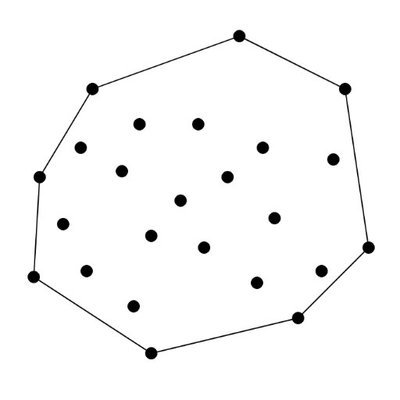結果
| 問題 | No.1023 Cyclic Tour |
| コンテスト | |
| ユーザー |
 kcvlex kcvlex
|
| 提出日時 | 2020-04-10 22:51:16 |
| 言語 | C++14 (gcc 15.2.0 + boost 1.89.0) |
| 結果 |
WA
|
| 実行時間 | - |
| コード長 | 5,804 bytes |
| 記録 | |
| コンパイル時間 | 1,436 ms |
| コンパイル使用メモリ | 139,172 KB |
| 実行使用メモリ | 26,644 KB |
| 最終ジャッジ日時 | 2024-09-15 23:11:23 |
| 合計ジャッジ時間 | 13,430 ms |
|
ジャッジサーバーID (参考情報) |
judge1 / judge3 |
(要ログイン)
| ファイルパターン | 結果 |
|---|---|
| sample | AC * 4 |
| other | AC * 38 WA * 11 |
ソースコード
#include <limits>
#include <initializer_list>
#include <utility>
#include <bitset>
#include <tuple>
#include <type_traits>
#include <functional>
#include <string>
#include <array>
#include <deque>
#include <list>
#include <queue>
#include <stack>
#include <vector>
#include <map>
#include <set>
#include <unordered_map>
#include <unordered_set>
#include <iterator>
#include <algorithm>
#include <complex>
#include <random>
#include <numeric>
#include <iostream>
#include <iomanip>
#include <sstream>
#include <regex>
#include <cassert>
#include <cstddef>
#define endl codeforces
#define ALL(v) std::begin(v), std::end(v)
#define ALLR(v) std::rbegin(v), std::rend(v)
using ll = std::int64_t;
using ull = std::uint64_t;
using pii = std::pair<int, int>;
using tii = std::tuple<int, int, int>;
using pll = std::pair<ll, ll>;
using tll = std::tuple<ll, ll, ll>;
template <typename T> using vec = std::vector<T>;
template <typename T> using vvec = vec<vec<T>>;
template <typename T> const T& var_min(const T &t) { return t; }
template <typename T> const T& var_max(const T &t) { return t; }
template <typename T, typename... Tail> const T& var_min(const T &t, const Tail&... tail) { return std::min(t, var_min(tail...)); }
template <typename T, typename... Tail> const T& var_max(const T &t, const Tail&... tail) { return std::max(t, var_max(tail...)); }
template <typename T, typename... Tail> void chmin(T &t, const Tail&... tail) { t = var_min(t, tail...); }
template <typename T, typename... Tail> void chmax(T &t, const Tail&... tail) { t = var_max(t, tail...); }
template <typename T> const T& clamp(const T &t, const T &low, const T &high) { return std::max(low, std::min(high, t)); }
template <typename T> void chclamp(T &t, const T &low, const T &high) { return t = clamp(t, low, high); }
template <typename T> T make_v(T init) { return init; }
template <typename T, typename... Tail> auto make_v(T init, std::size_t s, Tail... tail) { auto v = std::move(make_v(init, tail...)); return vec<decltype(v)>(s, v); }
template <typename T, std::size_t Head, std::size_t ...Tail> struct multi_dem_array { using type = std::array<typename multi_dem_array<T, Tail...>::type, Head>; };
template <typename T, std::size_t Head> struct multi_dem_array<T, Head> { using type = std::array<T, Head>; };
template <typename T, std::size_t ...Args> using mdarray = typename multi_dem_array<T, Args...>::type;
namespace init__ { struct InitIO { InitIO() { std::cin.tie(nullptr); std::ios_base::sync_with_stdio(false); std::cout << std::fixed << std::setprecision(30); } } init_io; }
namespace graph {
using Node = ll;
using Weight = ll;
using Edge = std::pair<Node, Weight>;
template <bool Directed>
struct Graph : public vvec<Edge> {
using vvec<Edge>::vvec;
void add_edge(Node f, Node t, Weight w = 1) {
(*this)[f].emplace_back(t, w);
if (!Directed) (*this)[t].emplace_back(f, w);
}
Graph<Directed> build_inv() const {
Graph<Directed> ret(this->size());
for (Node i = 0; i < this->size(); i++) {
for (const Edge &e : (*this)[i]) {
Node j;
Weight w;
std::tie(j, w) = e;
if (!Directed && j < i) continue;
ret.add_edge(j, i, w);
}
}
return ret;
}
};
template <typename Iterator>
class dst_iterator {
Iterator ite;
public:
dst_iterator(Iterator ite) : ite(ite) { }
bool operator ==(const dst_iterator<Iterator> &oth) const {
return ite == oth.ite;
}
bool operator !=(const dst_iterator<Iterator> &oth) const {
return !(*this == oth);
}
bool operator <(const dst_iterator<Iterator> &oth) const {
return ite < oth.ite;
}
bool operator >(const dst_iterator<Iterator> &oth) const {
return ite > oth.ite;
}
bool operator <=(const dst_iterator<Iterator> &oth) const {
return ite <= oth.ite;
}
bool operator >=(const dst_iterator<Iterator> &oth) const {
return ite >= oth.ite;
}
const Node& operator *() {
return ite->first;
}
const Node& operator *() const {
return ite->first;
}
dst_iterator operator ++() {
++ite;
return ite;
}
};
class dst_iteration {
using ite_type = vec<Edge>::const_iterator;
const vec<Edge> &edges;
public:
dst_iteration(const vec<Edge> &edges) : edges(edges) { }
auto begin() const {
return dst_iterator<ite_type>(edges.cbegin());
}
auto end() const {
return dst_iterator<ite_type>(edges.cend());
}
};
dst_iteration dst(const vec<Edge> &edges) {
return dst_iteration(edges);
}
}
struct Solver {
ll n, m;
graph::Graph<true> g;
vec<ll> label;
std::map<pll, ll> st;
Solver(ll n, ll m) : n(n), m(m), g(n), label(n) {
std::map<pll, ll> st;
while (m--) {
ll a, b, c;
std::cin >> a >> b >> c;
a--; b--;
g.add_edge(a, b);
if (c == 1) g.add_edge(b, a);
if (a > b) std::swap(a, b);
st[pll(a, b)]++;
}
}
bool dfs(ll cur, ll pre, ll l) {
label[cur] = l;
for (ll nxt : graph::dst(g[cur])) if (nxt != pre) {
if (label[nxt] == l) return true;
if (label[nxt]) continue;
if (dfs(nxt, cur, l)) return true;
}
return false;
}
bool solve() {
for (auto &&e : st) if (2 <= e.second) return true;
for (ll i = 0; i < n; i++) {
bool res = dfs(i, -1, i + 1);
if (res) return true;
}
return false;
}
};
int main() {
ll n, m;
std::cin >> n >> m;
Solver solver(n, m);
std::cout << (solver.solve() ? "Yes" : "No") << '\n';
return 0;
}
